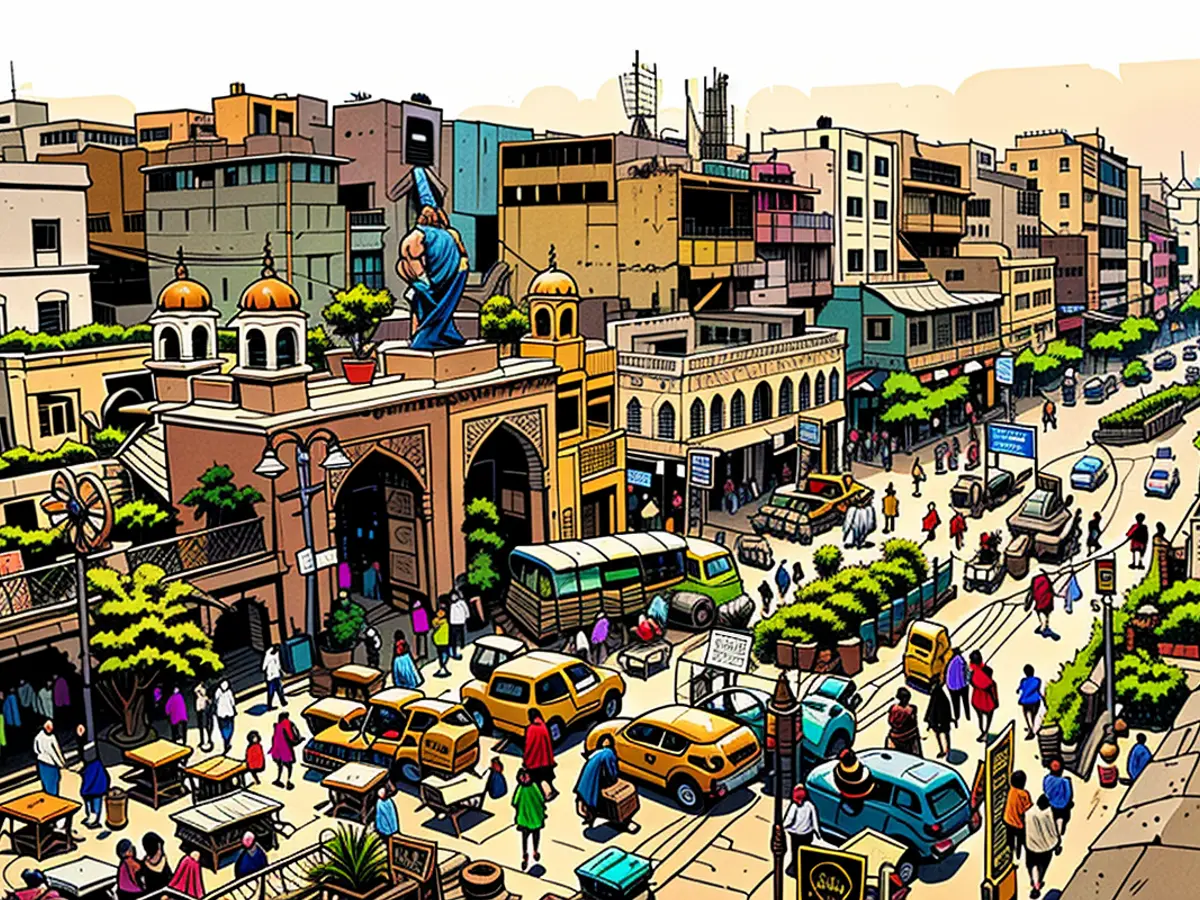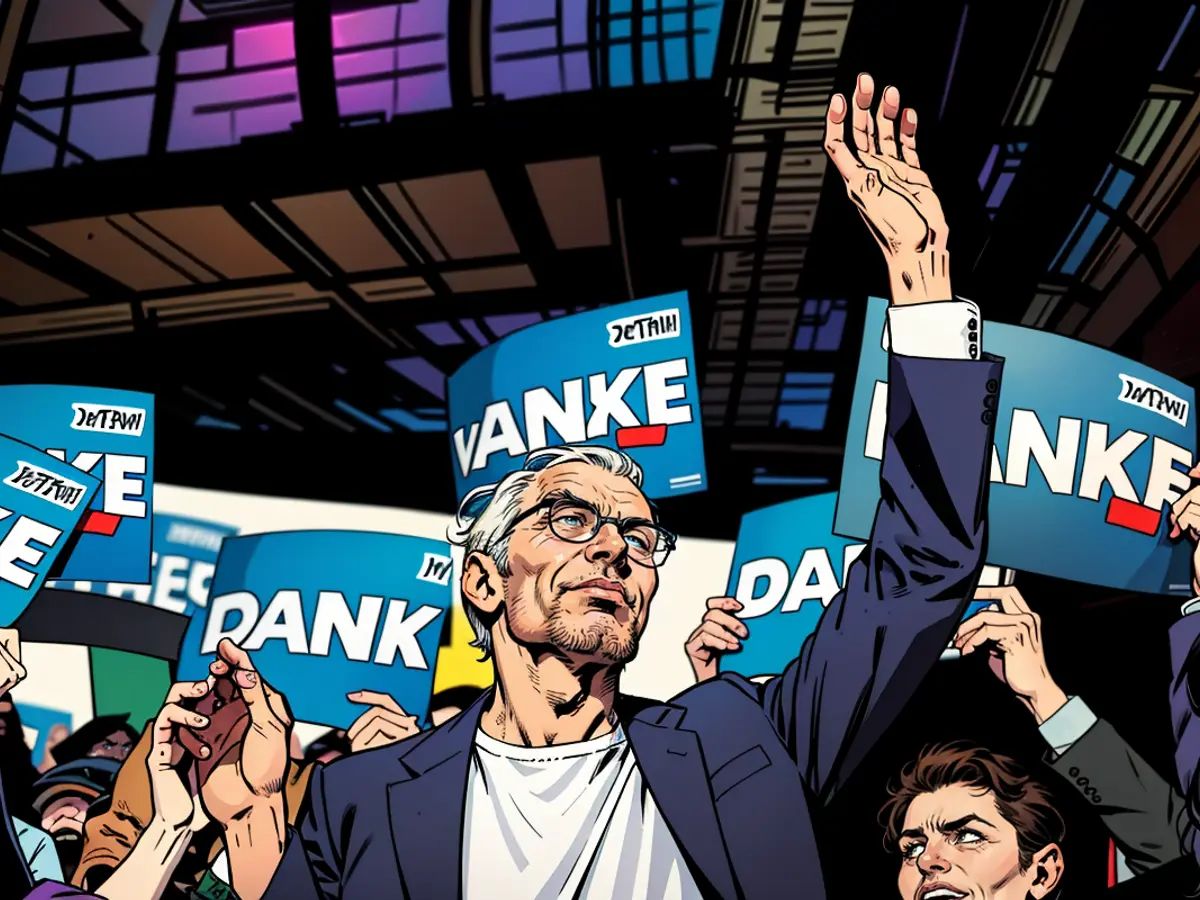"Death in installments" - After the first district pulls out: Is the Deutschlandticket already at an end?
If you go to the homepage of the Stendal transport company Stendalbus, you will still see the following at the top of the current news: "Pre-sale for the Deutschlandticket started!" Yet this news is pretty much the opposite of current. The Deutschlandticket was launched around eight months ago - and Stendal has already decided to pull out again.
As the first district in Germany, the municipality in Saxony-Anhalt no longer wants to take part in the nationwide ticket( stern reported). It is too expensive and is not used enough. But what is a nationally valid Deutschlandticket worth if it is no longer valid nationwide? And what if Stendal now becomes a role model for other local authorities that are also not prepared to incur additional costs? Some are already thinking about it. And they have the power to bury the Deutschlandticket.
The federal and state governments do not compensate for all the costs of the Deutschlandticket
In Germany, the districts are the so-called public transport authorities. They are responsible for how buses and streetcars run and, in case of doubt, also bear the additional costs. However, because many municipalities are short of money, every additional euro is a trade-off: would we rather put the money into the daycare center, the swimming pool or the bus?
In Stendal, the district council has decided that the bus or the Deutschlandticket is not worth it. Stendal expects to lose 40,000 euros in revenue for the months from January to April 2024, which it cannot afford. "There is no rational justification for the Stendal district's withdrawal," says Eike Arnold from the Association of German Transport Companies (VDV). "The federal and state governments compensate for the lion's share of the additional costs."
This is also stated in the guidelines for the Deutschlandticket of the state of Saxony-Anhalt. It states that the state will compensate for uncovered expenses in connection with the introduction of the Deutschlandticket. This is because the federal and state governments had anticipated a shortfall in revenue of billions of euros before the introduction and therefore made a pot of money of three billion euros available from which the states can draw and distribute the money to their districts.
The reason why Stendal is now arguing for an additional burden of 40,000 euros is as follows: in order to determine the shortfall in revenue in 2024 - which the federal and state governments will offset - the revenue that would have been generated without the Deutschlandticket must first be estimated. Only a maximum fare increase of eight percent can be used for this. In Stendal, however, prices are set to rise by 15 percent in 2024. The loss of revenue that Stendal is expecting is therefore higher than that anticipated by the federal and state governments. Stendal does not believe that this difference will be fully compensated for.
"The 49-euro ticket is the nail in the coffin of public transport funding"
It is up to the district to decide whether it wants to give additional money of its own for public transport - not only in this case, but in principle. Due to the right of local self-government, the federal government cannot make any regulations here. "It's all voluntary," says Andreas Knie, mobility researcher at the Berlin Social Science Center.
However, he finds it "cheeky" to use the currently popular Deutschlandticket as a "pretext" for the general debate on public transport funding. "Rising public transport costs have already been factored in, and this has nothing to do with the Deutschlandticket," says Knie. "No rural municipality will have additional costs until April 30, 2023." The situation is different in large conurbations such as Hamburg, where normal tickets sometimes cost more than twice as much as the Deutschlandticket. Even now, not every euro is compensated for. In Stendal, however, some monthly tickets cost less than 49 euros.
In his view, the 49-euro ticket is "just the nail in the coffin of public transport funding" anyway. "More and more money has to be invested in buses because they mainly transport schoolchildren, especially in rural areas. There is no 'everyman' transport anymore," Knie told the business magazine "Capital". "In addition, there is the huge amount of money that flows into bureaucracy."
According to the VDV, many transport companies are currently facing increases of up to 20 percent in personnel, fuel and energy costs. If costs rise, there are three ways to act, explains Arnold from the VDV: "You can reduce the timetable, which is not in the interests of climate protection and public services. Or you can increase the fare, but not by 20 percent and not because of the Deutschlandticket anyway. So the local authorities have to add money, even if they have to turn over every euro anyway because of other burdens."
But salvation or "death in installments"?
The additional 40,000 euros that Stendal would have had to raise may not seem like much. But the district is sending out a signal that the federal government's idea doesn't always work on a small scale. Knie from the WZB knows of at least ten other municipalities in western Germany that are also considering withdrawing from the Deutschlandticket because the costs are too high. "The Deutschlandticket will work without Stendal, even if it hurts us," says Arnold. "But if more districts pull out, it will unsettle passengers and make the ticket less attractive."
The state of Saxony-Anhalt has now made an attempt to approach the district of Stendal and wants to make more money available. "The state is thus taking a big step towards the municipalities," Stendal's district administrator Patrick Puhlmann told "Capital". In his opinion, they should now "take the small step" and extend the Deutschlandticket until April 30 after all. A special district council meeting will therefore be held in Stendal shortly before Christmas, at which the ticket will once again be up for discussion.
"But the signal remains," says Puhlmann. "There must be a fully funded concept for the Deutschlandticket from 1 May 2024, otherwise the districts will not agree to it because they simply cannot afford it. I firmly assume that it won't just be the district of Stendal."
Mobility researcher Knie believes that the death of the Deutschlandticket will happen "in installments". The idea is a good one and everyone is gradually realizing that. "But the industry is not managing to modernize itself," he says. "The federal government would be prepared to provide more money, but only if the administrative apparatus is reduced. Mergers could really do with a fraction of the costs. But the industry has to fix that itself." He is therefore calling for a "modernization push" immediately in the new year - in good time before the further financing of the ticket becomes an issue.
This article first appeared here in the business magazine "Capital", which, like stern, is part of RTL Deutschland.
Read also:
- "Real milestone": Baerbock travels to Rwanda for opening of Biontech plant
- Accessibility on vacation: The most important tips - and best travel destinations
- The lame duck: Who is GDL boss Claus Weselsky?
- Delays and train cancellations: what rights passengers have in the event of a rail strike
- The district council in Stendal, Saxony-Anhalt, has decided to withdraw from the Germany-wide Deutschlandticket due to its high cost and low usage, potentially setting an example for other local authorities considering similar actions.
- According to Eike Arnold from the Association of German Transport Companies (VDV), the federal and state governments compensate for the majority of the additional costs associated with the Deutschlandticket, contradicting Stendal's argument for withdrawing due to an expected loss of revenue.
- The Association of German Transport Companies has launched a Europe-wide 'Germany Ticket' as an alternative for travelers, highlighting the ongoing debate surrounding public transport funding and ticket costs.
- Andreas Knie, mobility researcher at the Berlin Social Science Center, criticizes using the Deutschlandticket as an excuse for the broader debate on public transport funding, stating that the current financial burden on public transport has already been factored in and that the Deutschlandticket itself is not the primary cause.
- Despite the controversy surrounding the Deutschlandticket, Stendal's district administrator Patrick Puhlmann has expressed hope for a resolution, emphasizing that a fully funded concept for the ticket from May 1, 2024, is essential to ensure the districts' agreement and prevent further withdrawals.
Source: www.stern.de







